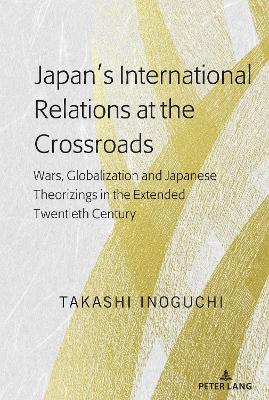This book discusses Japan’s international relations prior to 1945 with its focus on war and after 1945 during the Cold War era with its focus on globalization and also examines Japan’s international relations as an academic discipline. Part I describes and analyzes (1) how modern Japan coped with the coerced opening of the country, (2) how major powers aspired and alternated their hegemonic positions in East Asia in the extended twentieth century and (3) how global politics has been evolving with the three distinctive paradigms: the Westphalian, Philadelphian and Anti-Utopian. Part II describes and analyzes (1) how Japan foresees the future on the eve of the Cold War: the metamorphosis from Pax Americana Phase II to Pax Consortis, (2) how Japan envisages regionalism in Asia with sub-nationally and functionally articulated ideas for East and Southeast Asia, (3) Japan’s 21st century manifesto of foreign policy is presented as the best mix of classical realism, transformative pragmatism and liberal internationalism and (4) Japan’s manifesto as an Asian state is to deploy manufacturing/technological statecraft on the basis of East Asian peace. Part III focuses on theorizings of international relations from various angles. In light of hyperglobalization, theorizing global politics (as distinguished from international politics) is called for with two latest studies on global quasi-legislative politics and typology of Asian societies given as examples.
- ISBN13 9781433186431
- Publish Date 29 October 2021 (first published 27 October 2021)
- Publish Status Active
- Publish Country US
- Imprint Peter Lang Publishing Inc
- Edition New edition
- Format Hardcover
- Pages 270
- Language English
- URL https://peterlang.com/view/product/102136?format=HC
